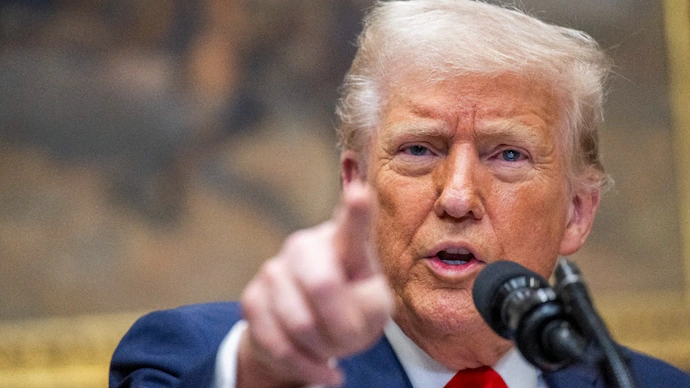In a significant move that is expected to reshape the global automotive market, former President Donald Trump has announced a 25% tariff on all imported vehicles and automotive parts.
The decision, which takes effect on April 2, 2025, is aimed at bolstering domestic car manufacturing while penalizing foreign automakers. This move has sparked both domestic and international debate over its potential economic and political implications.
Trump has long championed policies that promote American manufacturing and reduce the nation’s reliance on foreign-made goods. During his first presidency, he imposed similar tariffs on Chinese goods, and this latest decision continues his stance on trade protectionism.
According to Trump, the tariff is designed to protect American jobs, incentivize car manufacturers to produce vehicles within the U.S., and reduce the country’s trade deficit.
“For too long, our auto industry has been under attack by unfair foreign competition. This tariff will level the playing field and bring jobs back to American workers,” Trump stated during a press conference at the White House.
The 25% tariff applies universally to all foreign-built vehicles and automotive parts, including those from key U.S. trade partners such as Canada, Mexico, Germany, Japan, and South Korea. Unlike previous trade agreements, this policy does not exempt North American auto manufacturers despite the existing USMCA (United States-Mexico-Canada Agreement).
In addition, vehicles assembled in the U.S. but containing a significant percentage of foreign-manufactured components will also be subject to tariffs, expected to be implemented no later than May 3, 2025.
Impact on the U.S. Auto Industry
Domestic Automakers
While the Trump administration argues that the tariff will benefit American car manufacturers, industry analysts have expressed concerns that it may have unintended consequences.
While companies such as General Motors, Ford, and Tesla may see an initial increase in demand for domestically produced cars, the higher cost of imported parts could drive up production expenses.
Moreover, some car manufacturers rely on a global supply chain, meaning they import parts even for cars assembled in the U.S. Higher tariffs on these parts could lead to increased production costs, which may ultimately be passed on to consumers.
Car Prices for Consumers
One of the biggest concerns for American consumers is the expected rise in car prices. Experts predict that the cost of new vehicles in the U.S. could increase by as much as $12,500 per unit.
This increase could significantly impact affordability, especially for middle-class buyers who rely on budget-friendly imported cars.
“If these tariffs remain in place, American consumers will see higher prices across the board,” said John Peterson, an economist at the Center for Automotive Research. “It could lead to a drop in overall vehicle sales and impact both manufacturers and dealerships.”
International Response
The announcement has drawn swift criticism from U.S. allies and trade partners. Canadian Prime Minister Mark Carney condemned the tariff as a “direct attack on Canadian autoworkers,” vowing to take necessary steps to protect his country’s interests.
Similarly, European Union officials have expressed concerns, arguing that the move violates free trade agreements and could lead to retaliatory tariffs on American exports. Germany, home to major automakers such as BMW and Mercedes-Benz, has called for negotiations to avoid a trade war.
Meanwhile, Japan and South Korea, both of which have strong automotive ties with the U.S., have urged the Biden administration to reconsider the decision. South Korea’s Minister of Trade, Industry, and Energy warned that the tariffs could harm international relations and disrupt the global supply chain.
Economic and Political Implications
The economic effects of the tariffs remain uncertain, but they are expected to generate approximately $100 billion annually for the U.S. government. However, this revenue comes at the potential cost of reduced vehicle sales, slower economic growth, and strained international trade relationships.
Politically, this move is widely seen as a strategy by Trump to solidify support among blue-collar voters, particularly in manufacturing-heavy states like Michigan and Ohio, ahead of the 2024 presidential election.
While it may resonate with some voters who support economic nationalism, it could also alienate business leaders and trade partners.
Conclusion
Trump’s decision to impose a 25% tariff on car imports is a bold and controversial step that is likely to have widespread consequences. While it may encourage domestic manufacturing and bring some jobs back to the U.S., it also risks increasing car prices, harming international relations, and potentially leading to retaliatory measures from other countries. As the implementation date approaches, the global auto industry will be closely watching how these tariffs impact businesses, consumers, and trade partnerships.




